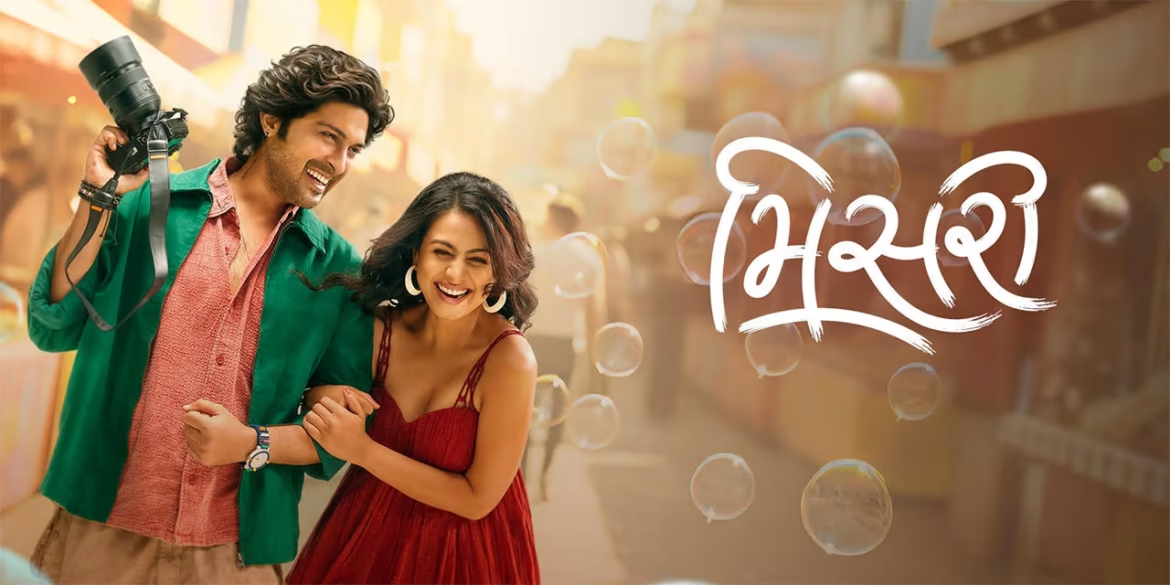Misri (2025) gujarati movie arrives as another refreshing step forward. Directed by Kushal M. Naik, the film stars Manasi Parekh and Raunaq Kamdar in lead roles, promising a soulful blend of romance, art, and life’s emotional complexities. With strong performances, appealing visuals, and relatable storytelling, Misri aims to connect with both young audiences and mature viewers who enjoy meaningful cinema.
Story Overview
The story revolves around Pooja, a passionate pottery artist, and Arjun, a free-spirited photographer. Their worlds collide when creativity brings them together — first as strangers curious about each other’s art, and then as two people drawn by genuine emotion.
What begins as a casual friendship slowly blossoms into a heartfelt relationship. Their chemistry feels natural, full of small gestures and real conversations rather than over-the-top drama.
However, as life often does, reality soon challenges their connection. Personal ambitions, emotional differences, and the unpredictability of fate test their love. Misri captures this delicate phase beautifully — exploring how two individuals handle misunderstandings and personal growth without losing the essence of love.
At its core, Misri isn’t just about romance. It’s about how love matures, how creative people balance their passion with relationships, and how sometimes distance teaches us what closeness truly means.
Performances
Manasi Parekh shines as Pooja. She delivers a performance full of grace and quiet strength. Her expressive eyes and controlled emotions make every scene believable. Whether she’s shaping clay or facing heartbreak, Manasi brings authenticity that instantly connects with viewers.
Raunaq Kamdar, playing Arjun, matches her energy perfectly. His character is charming and spontaneous yet layered with sensitivity. Raunaq has already made a name in Gujarati cinema for portraying complex emotions effortlessly, and Misri further cements that image.
Together, their on-screen chemistry feels genuine — not forced. Their conversations, laughter, and silences all feel like moments between real people, not scripted performances.
The supporting cast, including Tiku Talsania and Prem Gadhavi, adds warmth and depth to the story. Each supporting character contributes meaningfully, whether it’s through comic timing, emotional wisdom, or narrative balance.
Direction and Screenplay
Director Kushal Naik deserves applause for presenting a simple love story in a visually poetic way. Instead of following commercial formulas, he focuses on moments — a quiet conversation, a walk under city lights, or a glance that says everything.
The screenplay flows smoothly without unnecessary twists. Every scene has purpose and emotion. The pacing is steady — slow enough to absorb the feelings, yet engaging enough to keep you invested.
Kushal Naik’s biggest success lies in how he lets his actors breathe within their roles. He avoids melodrama and focuses on realism, making the film relatable for today’s generation while maintaining the cultural touch that defines Gujarati cinema.
Cinematography and Music
Visually, Misri is stunning. The cinematography captures both the beauty of art and the emotion of relationships. Scenes set in pottery studios, narrow city lanes, and vibrant outdoor locations look rich and colorful without being loud.
The camera often lingers on faces and hands — small details that show emotion more powerfully than dialogue. The lighting and framing create a soft, romantic atmosphere that perfectly complements the film’s mood.
The music is another highlight. The background score and songs flow naturally with the story, enhancing the emotions rather than overpowering them. The title track “Misri” (if early promos are any indication) is melodious and memorable — something audiences will likely hum even after leaving the theatre.
Writing and Dialogues
The dialogues in Misri are simple yet meaningful. They capture the flavor of everyday Gujarati speech while carrying emotional depth. Instead of heavy poetic lines, the conversations sound natural — something you could imagine real couples saying to each other.
Lines about love, art, and life feel genuine because they come from the characters’ experiences, not from a writer trying to impress. This realism gives Misri a strong emotional connection with its audience.
Themes and Emotional Depth
The film beautifully touches on several universal themes — love, individuality, emotional growth, forgiveness, and artistic expression. What makes Misri different from regular romantic dramas is how it deals with emotions subtly.
Instead of shouting or crying scenes, we see characters processing pain quietly — the way real people do. It reminds us that love isn’t always grand gestures or picture-perfect endings. Sometimes, love is about understanding, letting go, and rediscovering yourself.
There’s also a deeper message about self-worth — how two people can love each other deeply but still need personal space and identity. For creative audiences, the connection between art and emotion will feel particularly relatable.
Strengths
Authentic storytelling: Realistic characters, relatable conflicts, and honest emotions.
Excellent performances: Manasi and Raunaq’s chemistry elevates every frame.
Visual poetry: Warm, soft visuals enhance the mood without exaggeration.
Meaningful music: Every song adds value to the narrative.
Cultural connection: While it feels modern, the film still celebrates Gujarati values and simplicity.
Weaknesses
No film is perfect. Misri’s pacing might feel a bit slow for viewers expecting high drama or comedy. The second half could have used slightly more tension to heighten emotional impact. A few scenes may also feel predictable because of the familiar “love-tested-by-circumstance” formula.
However, these are minor issues compared to the film’s overall sincerity and heart.
Final Verdict
Misri is a beautifully crafted romantic drama that stands out for its authenticity and emotional honesty. It doesn’t rely on gimmicks or flashy storytelling — instead, it wins hearts through simplicity, emotion, and performance.
For Gujarati cinema lovers, it’s a refreshing reminder that our industry is capable of creating heartfelt stories with artistic finesse.
Rating: ⭐⭐⭐⭐ (4/5)

